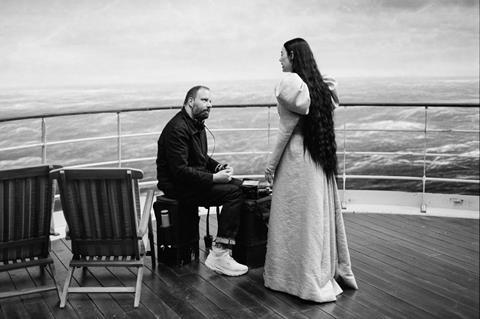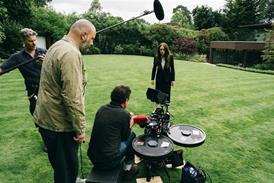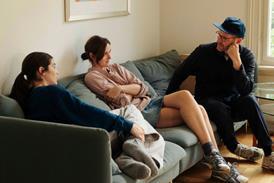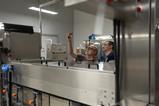NFI Filmlab is the Budapest facility working with filmmakers including Yorgos Lanthimos, Pablo Larraín, Ildikó Enyedi and László Nemes on their complete analogue and digital production needs, helping them to realise the look and feel of their projects.

With more than 60 years’ experience, NFI Filmlab is one of the few laboratories in the world that continues to offer traditional film processing (colour, black and white, 16mm and 35mm), analogue colour grading and negative cutting services. Yorgos Lanthimos’s multi award-winning Poor Things, starring Emma Stone, is one of the many high-profile international projects to make use of its facilities.
The National Film Institute Hungary is committed to both keeping alive and further developing analogue film technologies — state-of the-art processing machines were set in operation in the laboratory in 2024 for this purpose.
NFI Filmlab can lay claim to being the leading film laboratory in Central Europe. It boasts a comprehensive
suite of capabilities, and a full range of digital lm post-production services including — but not limited to — digital “on-set” tasks; colour grading, with several screening rooms; and visual effects for both live-action and animation productions.
Chiaroscuro reimagined
Lanthimos fillmed Poor Things almost entirely in Hungary. Cinematographer Robbie Ryan shot on 35mm in both colour and black and white, created unusual lenses, worked with rare film stocks, and filmed in studios where his director was trying to avoid typical lighting. Both colour and black-and-white negatives were processed in the lab.
“There are very few laboratories in the world that can process this film stock. Luckily for us, a lab was quite close to our studio in Hungary,” Ryan says of NFI Filmlab.
“Film has the purest and deepest contrasty blacks and more details in the shadows and highlights,” says
Filmlab managing director Victoria Sovák of the main reason cited by filmmakers to use lm for their projects. “ The difference is really noticeable in films with dark scenes.”
Prior to joining NFI Filmlab, Sovák gained experience in roles at leading European film laboratories Hiventy/ TransPerfect and Laboratoires Eclair in France, and L’Immagine Ritrovata in Italy. “From the full analogue era until the appearance of born-digital movies, I took it as my responsibility to know all workflows, machines and software,” Sovák says. “I have solid experience in almost every area of film post-production from film processing and negative cutting, through analogue colour grading to digitisation and digital deliveries.
Over the past four years, Sovák has been involved in the PSNA project run by France’s ECPAD, which is working on the digitisation and analogue preservation of about 4,500 nitrate films. “As a project manager, I took care of the preparation of the project and development of the workflow, supervising the technical works and also training technicians for the project’s needs throughout the different departments.”
Sovák points out many producers now believe the costs of shooting on film are comparable to shooting on digital. “Even though one can have an extra cost with the film stock and its processing, directors and cinematographers shooting on film usually have a different way of filming and produce less footage,” she explains. Further high-profile projects to be housed at NFI Filmlab include Chilean filmmaker Pablo Larraín’s Maria starring Angelina Jolie as opera singer Maria Callas. Shot partly in Hungary in 2023, NFI Filmlab oversaw the processing of all colour and black-and-white negatives, including the scenes shot abroad.
NFI Filmlab also housed the col- our grading and produced the digital deliveries for Milorad Krstic’s eye-popping 2018 Hungarian animation Ruben Brandt, Collector, about a psychotherapist turned art thief, distributed in the US by Sony Pictures Classics. The lab has also just started to pro-cess the camera negatives of Silent Friend, the upcoming film from Hungarian director Ildikó Enyedi. The co-production between Germany’s Pandora Film, France’s Galatée Films, Hungary’s Inforg M&M Film and China’s Rediance Films focuses on an ancient tree brought from South America to a botanical garden in Marburg, Germany, and explores the relationship between humans and nature. Orphan, the upcoming feature from Son Of Saul filmmaker László Nemes, is scheduled to shoot this summer in Budapest, and is also booked in for some NFI Filmlab magic.



























